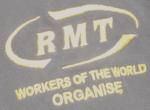Thursday, 24th of April '14
Tube Job Cut Plans Will Hit Every Equalities Group
Fit For the Future – Stations will hit every stations worker with pay cuts, displacements, reduced work-life balance, etc. But its proposals will affect women, black and ethnic minority, LGBT, older, younger and disabled people in specific ways.
LU is obliged by law to assess what the impact on equalities groups will be. But LU has carried out a shabby and inadequate assessment. RMT and other unions’ reps have met LU about these issues in the last few weeks; management has revealed that it does not treat its obligation towards equalities groups seriously.
- Unsubstantiated claims
LU provided no evidence to back up its claim that there will be no negative impact on women, black and ethnic minority, LGBT or younger workers. LU even admitted in one meeting that its assessment was based on ‘perception’ and ‘feelings’, not evidence.
- Equalities issues do not influence LU’s decisions
Best practice guidelines say that the impact on equalities groups should influence an organisation’s decision-making. Instead, LU thinks it should make decisions first and assess their equality impact afterwards. Even LU has concluded that FftF-Stations will negatively impact older and disabled workers, but it does not think this is a reason to change its proposals. We say FftF-Stations’ negative impact on every equality group is a reason for LU to scrap its current proposals and go back to the drawing board.
- Risk assessment?
- LU’s statistics show an upward trend in workplace violence; an increase over two years in sexual, homophobic and racist violence.
- LU admitted that the number of stations with lone working will increase from 73 to 122. But LU said this will not lead to increased assault risk, only an increase in our ‘perception of risk’. This insultingly implies our worries about working alone are figments of our imagination!
- We highlighted that people from equality groups are more vulnerable to assault: women disproportionately experience sexual assault; LGBT and black and ethnic minority workers are vulnerable to racially motivated attacks or hate crime. LU’s offer to mitigate against this with ‘assault awareness training’ missed the point: these specific types of assault are the fault of the perpetrator and cannot be reduced by training the victim. LU was unable to answer our question, ‘How are you going to train women not to be sexually assaulted?’
- LU underestimated how many people from equality groups would be exposed to lone working as a result of FftF-Stations. RMT forced LU to admit it had made a ‘false claim’ which it would need to correct.
- LU’s statistics show an upward trend in workplace violence; an increase over two years in sexual, homophobic and racist violence.
- Disability discrimination
Unions argued that LU should guarantee that no one with medical restrictions or a disability will be placed in a job that they cannot manage; all ‘reasonable adjustments’ should remain; new adjustments should be made for displaced staff. But LU said it would be ‘business as usual’: staff will be accommodated if it’s deemed ‘reasonable’; others will face redeployment with the support of LUOH. LU even said that ‘VS’ will be available ‘if no mitigation can be found’. It sounds like it’s prepared to push disabled staff out the door; it certainly won’t guarantee to accommodate us if we’re not ‘fit for the future’.
This issues affect all of us; we will all get old and we could all become medically unfit for our role at any time.
- Inequality is built into the structure of Fit for the Future – Stations
- Top heavy. FftF-Stations is removing positions on the front line but creating more management. There will be 145 additional DSM or GSM equivalent grade positions (228 current GSMs and DSMs; 433 proposed Area Managers and Customer Service Manager 1s).
This structure will benefit people already in higher grades, i.e. the grades with fewest BEM, women, younger or LGBT workers. E.g. The lowest percentage of women is in the SS1 grade (12%), so relatively few women will be in a position to access CSM1 positions.
- Most diverse grades abolished. SAMF is the stations grade with the highest proportion of women (27.9%) and BEM workers (47.8%). SCRA is the stations grade with the highest proportion of LGBT workers (4.5%). SAMFs and SCRAs face compulsory pay cuts if their grade is abolished. Targeting the grade with the highest concentration of BEM staff will remind some of the 1989 reorganisation, 'Action Stations', which aimed to prevent the progress of BEM staff in LU.
- Women, BEM, LGBT and younger workers will be concentrated in the lowest-paid grades, with few promotional opportunities. One LU manager told us, ‘If broadly women were in the lower paid roles and men in the higher paid roles then that would be something we would have to address’. RMT has proven that this will be the case. This should concern LU enough to re-think its plans.
- Deletion of 953 positions and reduction in front line staff will cause many displacements. This will adversely affect people with caring responsibilities (disproportionately women) and staff with disabilities. The only potential mitigation is to maintain the current headcount.
- Top heavy. FftF-Stations is removing positions on the front line but creating more management. There will be 145 additional DSM or GSM equivalent grade positions (228 current GSMs and DSMs; 433 proposed Area Managers and Customer Service Manager 1s).
- 8300 reads




